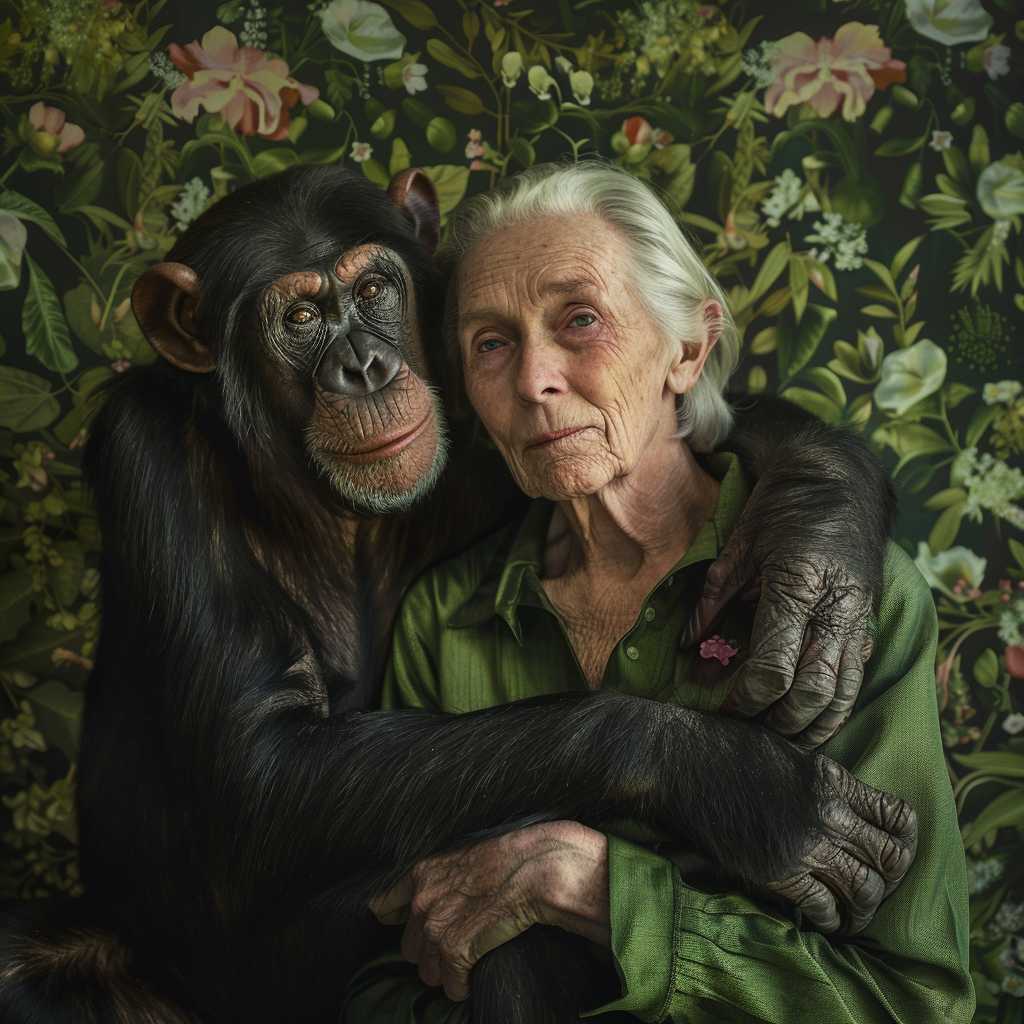The Remarkable Life and Contributions of Jane Goodall: A Pioneer in Primatology and Conservation
Renowned for her groundbreaking work in primatology and her tireless efforts in environmental conservation, Jane Goodall’s contribution to our understanding of chimpanzees and the natural world has been nothing short of remarkable. From her early years in the Gombe Stream National Park to her global activism, Goodall’s journey is a testament to the power of patience, resilience, and a deep love for all living beings.
Early Life and Inspiration for Primatology
Jane Goodall was born on April 3, 1934, in London, England. From an early age, she harbored a fascination with animals and Africa, inspired by the stories she read and a strong desire to live among African wildlife. It was her sheer determination and her dream to study animals in their natural habitat that ultimately shaped her path in life.
Despite having no formal scientific training at the time, Goodall bravely traveled to Africa and met the famed anthropologist and paleontologist Dr. Louis Leakey. Impressed by her passion and determination, Leakey hired Goodall as his assistant. He believed that a long-term study of chimpanzees, our closest living relatives, would provide important insights into the behavior of early hominids.
The Gombe Chimpanzee Research
In July 1960, Goodall commenced her pioneering research at the Gombe Stream National Park in Tanzania. With no specific scientific training, Goodall brought a fresh perspective to field research. Her observations were meticulous and patient, which eventually led to groundbreaking discoveries regarding chimp behavior.
She became the first scientist to observe chimpanzees creating tools when she saw them strip twigs of leaves to fish for termites, fundamentally altering the perception that only humans could construct tools. Furthermore, Goodall’s studies revealed a complex social system among chimps that included ritualistic behaviors, deep familial bonds, and even warfare between groups.
Goodall’s approach to research – characterized by her immersion into the chimpanzee habitat and her establishment of emotional bonds with the animals – broke convention. It offered a new way of looking at primatology that was more personal, affectionate, and anecdotal than had been standard in the scientific community.
Advancing Science and Advocacy
Goodall’s work was crucial in redefining the relationship between humans and animals. She advocated for viewing chimpanzees as individuals with their own personalities, emotions, and social relationships. Her detailed observational studies of chimpanzees lasted over 55 years—the longest-running continuous wildlife research project in the world.
Eventually turning to activism and conservation, Goodall founded the Jane Goodall Institute in 1977 to support ongoing research at Gombe and advocate for conservation efforts around the world. The institute focuses on community-centered conservation programs while promoting sustainable development.
Goodall is also a global leader in efforts to combat climate change and environmental crises. Through initiatives like Roots & Shoots – an international youth-centered environmental campaign – she inspires younger generations across the globe to take action for a positive future planet.
Recognition and Awards
Throughout her illustrious career, Jane Goodall has received numerous awards and commendations. She was appointed Dame Commander of the Order of the British Empire (DBE) by Queen Elizabeth II for her services to research and conservation. Furthermore, Goodall has been honored with various doctoral degrees along with prestigious prizes acknowledging both her scientific achievements and humanitarian work.
Continuing Impact
Even today, Jane Goodall remains actively involved in advocating for environmental causes worldwide. Through speeches, writings, and personal engagements, she continues to drive public awareness towards critical global issues such as deforestation, wildlife trafficking, and sustainable environmental practices.
